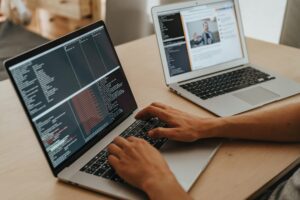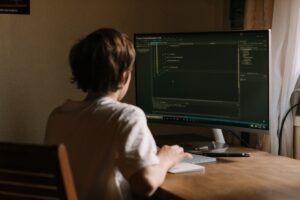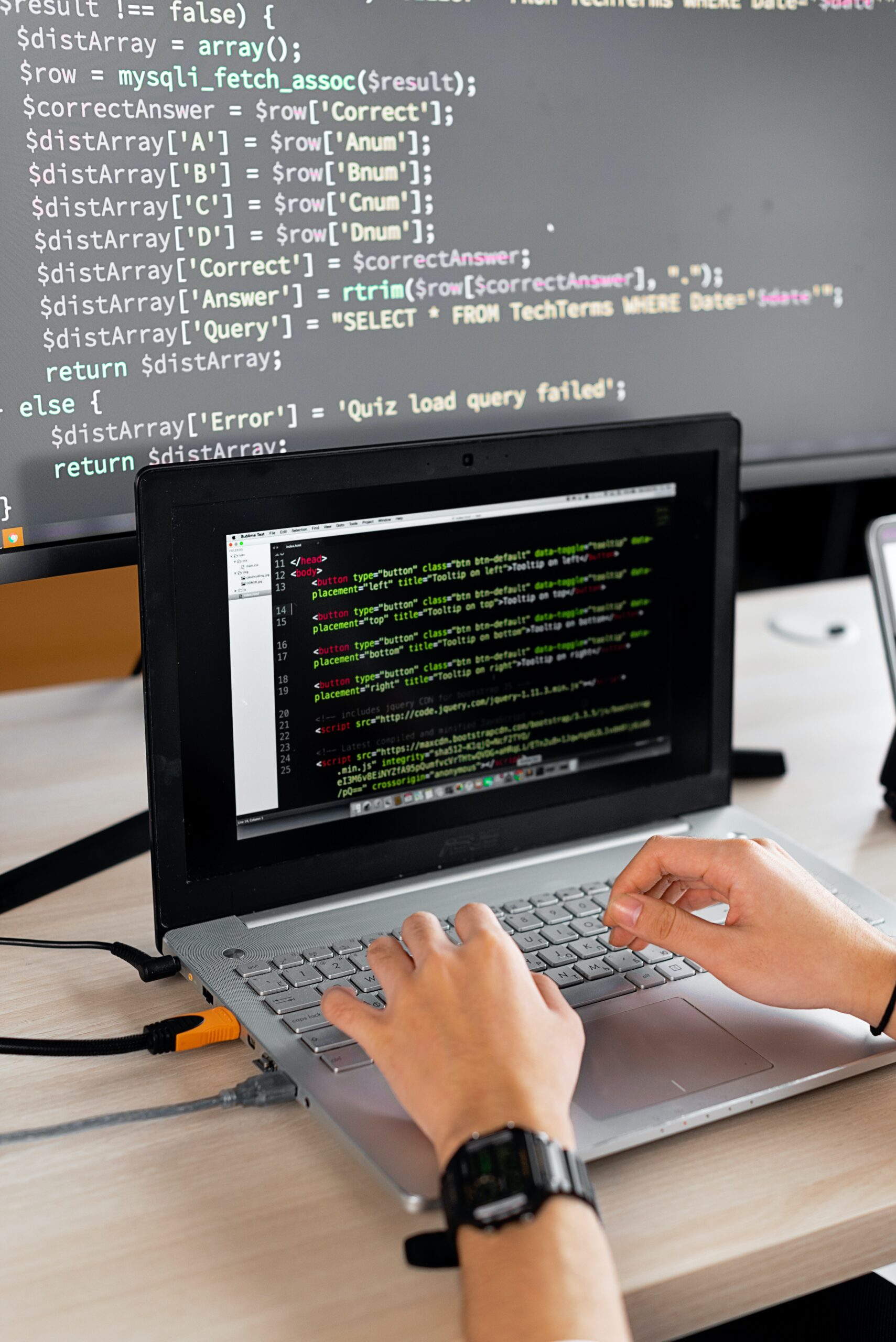How to start learning coding
If you have no background in computer science or programming, the best way to start learning how to code is to begin with a foundational course in computer science. This will give you a basic understanding of how computers work and how to write simple programs.
Once you have a basic understanding of computer science, you can move on to more advanced programming languages and concepts. There are many online courses, tutorials, YouTube, various pages you may find on the internet and books available to help you learn how to code, so you can choose the learning method that works best for you.
Here are some steps you can follow to how to start learning coding:
- Choose a programming language to learn.
- Find online courses, tutorials, YouTube channels and books to help you learn the basics of the language.
- Start with the basics and work your way up to more advanced concepts.
- Practice writing code regularly to improve your skills.
- Join online communities and forums to connect with other learners and get advice and support.
- Continue learning and expanding your knowledge of different programming languages and concepts.
By following these steps, your answer to how to start learning coding can be solved even if you have no background in computer science. With dedication and hard work, you can become a skilled programmer.

Types of programming languages
There are many different types of programming languages, and they can be grouped into several broad categories. Some common types of programming languages include:
- Imperative languages: These languages use a set of instructions to tell the computer what to do. Examples include C, C++, and Java.
- Functional languages: These languages are based on mathematical functions and are designed to be more concise and easy to reason about. Examples include Haskell and LISP.
- Object-oriented languages: These languages are based on the concept of objects and use classes to define data and behavior. Examples include C++, Java, and Python.
- Scripting languages: These languages are typically used to automate tasks and are often used in web development. Examples include JavaScript, PHP, and Ruby.
- Logic languages: These languages are based on formal logic and are often used for artificial intelligence and expert systems. Examples include Prolog and Datalog.
Each programming language has its own unique features and capabilities, and choosing the right language for a project depends on many factors, such as the type of application, the performance requirements, and the skills of the programmer.
YouTube channels to learn coding
There are many YouTube channels that offer programming tutorials and lessons for beginners on how to start learning coding. Some popular options include:
- The Coding Train: This channel features a wide range of programming tutorials and challenges, with a focus on creative coding and data visualization.
- LearnCode.academy: This channel offers a variety of tutorials on web development, game development, and other programming topics.
- freeCodeCamp.org: This channel provides a comprehensive curriculum for learning web development, with a focus on hands-on projects and real-world examples.
- CS Dojo: This channel offers a wide range of programming tutorials, with a focus on popular languages like Python, Java, and C++.
- Derek Banas: This channel features clear and concise tutorials on a variety of programming languages and concepts.
By watching these and other YouTube channels, you can learn the basics of programming and start building your own projects. It’s important to remember that learning to code takes time and practice, so be prepared to put in the effort to improve your skills.

Few Basic and advanced concepts of Coding
Some basic concepts of coding include:
- Variables: These are named containers that store data values, such as numbers, strings, and Booleans.
- Data types: These are the different types of data that a programming language can manipulate, such as numbers, strings, and Booleans.
- Control structures: These are statements that control the flow of a program, such as if/else statements, loops, and switch statements.
- Functions: These are blocks of code that can be reused and invoked multiple times within a program.
- Objects: These are data structures that combine data and behavior, allowing you to model real-world entities in your code.
Some advanced concepts of coding include:
- Algorithms: These are step-by-step procedures for solving problems, such as sorting data or searching for a specific item in a collection.
- Data structures: These are specialized ways of organizing and storing data, such as arrays, linked lists, and trees.
- Design patterns: These are common solutions to recurring design problems, such as the factory pattern or the observer pattern.
- Concurrency: This is the ability of a program to handle multiple tasks simultaneously, such as handling multiple user requests in a web application.
- Machine learning: This is a type of artificial intelligence that allows a program to learn from data and make predictions or decisions based on that data.
Online communities / forums for coding
There are many online communities and forums where programmers can connect with each other, ask questions, and share advice and code on how to start learning coding. Some popular options include:
- Stack Overflow: This is a question and answer forum for programmers, where users can ask and answer questions on a wide range of programming topics.
- Reddit’s r/learnprogramming: This is a subreddit dedicated to discussing programming, with a focus on learning and helping others.
- GitHub: This is a platform for hosting and collaborating on code, with a large community of users who share and discuss their projects.
- Codecademy Forums: This is the official forum for Codecademy, a popular online platform for learning to code. Users can ask questions and get help from other members of the community.
- Dev.to: This is a community platform for developers, where users can share articles, tutorials, and projects, and discuss programming topics with others.
By joining these and other online communities, you can connect with other programmers, know how to start learning coding, learn from their experiences, and get help with your own coding projects.

How to start learning coding
ALSO READ : INDIAN CBDC
ALSO READ : BITCOIN AND ETHEREUM CRYPTOCURRENCY










